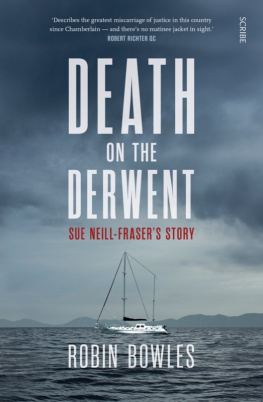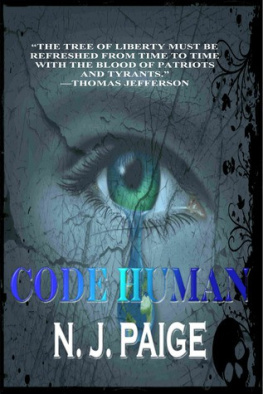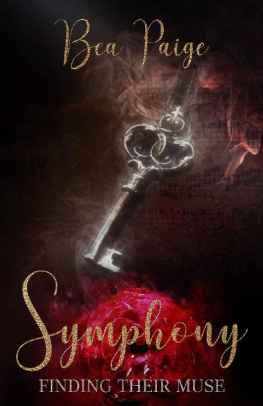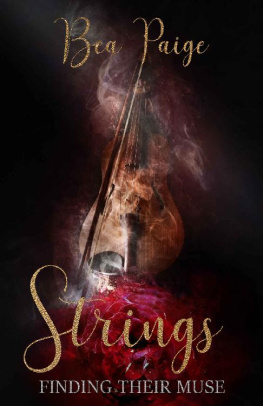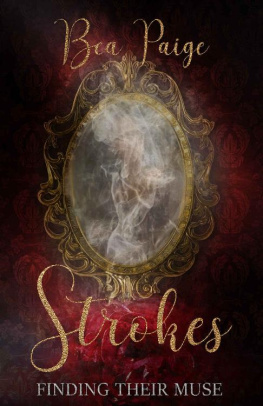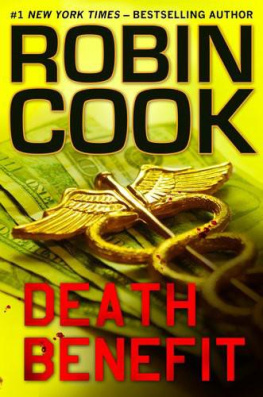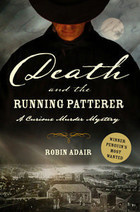Robin Paige - Death at Bishops Keep
Here you can read online Robin Paige - Death at Bishops Keep full text of the book (entire story) in english for free. Download pdf and epub, get meaning, cover and reviews about this ebook. genre: Detective and thriller. Description of the work, (preface) as well as reviews are available. Best literature library LitArk.com created for fans of good reading and offers a wide selection of genres:
Romance novel
Science fiction
Adventure
Detective
Science
History
Home and family
Prose
Art
Politics
Computer
Non-fiction
Religion
Business
Children
Humor
Choose a favorite category and find really read worthwhile books. Enjoy immersion in the world of imagination, feel the emotions of the characters or learn something new for yourself, make an fascinating discovery.

- Book:Death at Bishops Keep
- Author:
- Genre:
- Rating:4 / 5
- Favourites:Add to favourites
- Your mark:
- 80
- 1
- 2
- 3
- 4
- 5
Death at Bishops Keep: summary, description and annotation
We offer to read an annotation, description, summary or preface (depends on what the author of the book "Death at Bishops Keep" wrote himself). If you haven't found the necessary information about the book — write in the comments, we will try to find it.
Death at Bishops Keep — read online for free the complete book (whole text) full work
Below is the text of the book, divided by pages. System saving the place of the last page read, allows you to conveniently read the book "Death at Bishops Keep" online for free, without having to search again every time where you left off. Put a bookmark, and you can go to the page where you finished reading at any time.
Font size:
Interval:
Bookmark:
Robin Paige
Death at Bishops Keep
1
"I am in just the mood for a ghostly tale, a scene of mystery, a startling revelation, and where snail I loot for an obliging magician to gratify me?"
"Here!"
LOUISA MAY ALCOTT, "The Fate of the Forrests"Kate Ardleigh glanced warily over her shoulder. The late-summer night was black as the pit and stormy, lighted by the intermittent blue-white glare of lightning flashes. The wind skittered like a mad thing through Manhattan's nearly empty streets, twisting Kate's sensible skirt about her ankles and flapping the chestnut vendor's sign. It was precisely the sort of wild night on which Felix Farmore had kidnapped Pearl St. John, in Kate's second story, "Missing Pearl, Or The Lost Heiress." And it was in just such a shadowy street that Felix had apprehended Pearl and borne her off to her fate.
But the figure that Kate saw behind the passing two-horse omnibus was nothing like the fictitious Farmore. It was quite real, and familiar, too, for she had seen it yesterday as well. She quickened her pace, lifting her skirt to avoid a pile of horse droppings and ducking behind a brewery wagon piled with wooden kegs. He (for Kate was quite certain that it was
a man, stout and bowler-hatted) had followed her yesterday. And this evening, he had followed her ever since she had left the Fifth Avenue offices of the Frank Leslie Publishing House, where she had finally procured payment for ' 'Missing Pearl." She fisted her gloved hands in the pockets of her trim-fitting jacket and drew her brows together, her apprehension mixed with more than a little annoyance.
In point of fact, Kate would not have been abroad on the streets on a Tuesday evening, a good hour after the closing of the shops, if Mr. Bothwell Coxford, a haughty, self-important assistant editor of Frank Leslie's Popular Monthly, had not kept her waiting for the greater part of the afternoon. It was only as the electric lamps were being lighted that a clerk had brought her a bank draft for $225, an amount that would permit her to pay Mrs. Murchison the rent and see her comfortably situated until she had finished her next serial story, which she had tentatively titled "Amber's Amulet, Or The Conspiracy of Death." The money was worth walking a total of forty blocks to fetch, even if the wild night threatened rain.
Kate gave another furtive glance over her shoulder and quickened her step. The shadow had gained ground and was closing fast. Most women would have been frightened to death in such a circumstance, but Kate, independent and self-sufficient, was not given to fright. She stepped decisively around the corner and into the pale halo that encircled the street lamp in front of the Ninth Street Police Station.
The station's stone staircase descended solidly to the pavement and a reassuring light glowed behind the frosted glass door. It was here that her uncle, Sean O'Malley, served as detective sergeant. Uncle Sean was probably at home, presiding over pot roast and potatoes with Aunt Maureen and the two youngest O'Malleys. But inside the station Kate could hear the thunderous voice of Inspector Duggan, the night sergeant, bawling into the recently installed telephone in a voice loud enough to be heard in Brooklyn. If she were to confront the shadowy figure, she had best do it here, where a loud scream would summon reinforcements.
Kate slipped into the shadow of the stairs and waited, holding her breath, until Bowler-Hat turned the corner. He hesi-. tated, stroking his handlebar mustache as he searched the empty street. Then she stepped out and accosted him with greater boldness than she felt, speaking in a firm, unfaltering voice.
"Please be good enough, sir," she said, lifting her chin, "to tell me why you are following me."
Bowler-Hat's mustache twitched and his beefy face registered surprise, alarm, and chagrin, in that order. He hunched his shoulders and shifted his feet uncomfortably, his garments exuding the smoky seasoning of cigars and garlic. Then he collected himself, straightened his shoulders, and cleared his throat.
"You mistake me, madam," he said with great dignity. "I am not following-"
"Stuff and nonsense," Kate snapped. She stamped her foot. "Do you take me for a fool? You, sir, have been trailing a half block behind me ever since I left Fifth Avenue. What is more, you were following me yesterday-and rather clumsily, I must say. Now, do you wish to tell me why you are being such an annoyance, or do you prefer to yield that information to"-she pointed at the brightly lighted door- "Inspector Duggan?"
At that moment, Inspector Duggan was heard to shout into the phone, "Well, then, and a good night to you, too, sir," and to bellow for Corporal Peters, "on the double, dammit!"
His jaw tightening, Bowler-Hat's glance darted from Kate to the lighted door and back again. He hesitated, clearly perceiving that he was in a tight place.
"As you wish," he said sourly. Reaching into the pocket of his tweed coat, he produced a leather card case and handed her a card. "If you will appear at this address on Friday morning at ten, you will be told what you wish to know."
Kate turned the thin gray card to the light. On it was printed, in bold letters, the name Rodney P. Kellerman, and beneath that, Pinkerton's Detective Agency, New York Office, with an address on Second Avenue.
Kate's eyes widened. A private detective! What amazing
good fortune! But she did not allow her delight to creep into her voice.
"Pinkerton's?" she asked with cold formality. "And what, pray tell, does Pinkerton's require of me?"
But Rodney P. Kellerman did not appear inclined to answer. He touched his fingers to the brim of his bowler. ' 'Friday at ten, madam," he said, and marched stiffly around the corner.
It began to rain.
2
"In the late nineteenth century the most popular form of narrative was the penny-dreadful (or shilling shocker, as it was called in England). Some of the tales were written, pseudonymously, by resourceful women who insisted on making a living for themselves."
SUSAN BLAKE, "With Her Own Pen"1 lutching Rodney P. Kellerman's card in a cold fist, Kate V^Ardleigh returned to her bleak third-floor room in Mrs. Murchison's boarding house on Mayberry Street. It was a lodging she had taken only four months before, after the sudden death of her employer, Mrs. Winifred P. Schreiber, whose secretary-companion she had been since leaving Mrs. Daw-son's employ in 1889, five years before. Kate could have (and probably should have, she told herself) sought immediate
reemployment. Mrs. Schreiber's lawyer would have been glad to give her the highest recommendation, as would Mrs. Daw-son, whose three children-dreadful brats! she had tutored. As she was now a skilled typist (an art she had learned at Mrs. Schreiber's request), she might have sought clerical employment, as well as work as a governess or a companion.
Or she could have returned to her childhood home with her Aunt and Uncle O'Malley, where she would have been greatly welcome. Kate's British father, Thomas Ardleigh, had died before her birth and her Irish mother, Aileen, had similarly succumbed when she was five. The O'Malleys, warmly capacious in their Irish affections, had been mother and father to her, and their six children had been her brothers and sisters. She was deeply attached to them. But while she visited often, returning to live with them would have seemed an admission that she was not capable of making her own way in the world.
Or finally (in Kate's view, it really was a last resort) she could have married. While she was not a conventionally pretty woman, a few men-those not afraid of a strong woman-had been attracted by the intensity of her personality and the depth of her self-composure. She had rejected the attentions of several men, of whom she might have been decently fond if she had made the effort. But she had not. ' 'Decently fond" was not fond enough. Spinsterhood, whatever fear it might strike in the hearts of ordinary women, held no terrors for Kate. She had something else to do, and she intended to do it as long as she could afford private lodgings, lamp oil, paper, and ink-and perhaps, on some glorious day, a typewriter. She intended to be a writer.
Font size:
Interval:
Bookmark:
Similar books «Death at Bishops Keep»
Look at similar books to Death at Bishops Keep. We have selected literature similar in name and meaning in the hope of providing readers with more options to find new, interesting, not yet read works.
Discussion, reviews of the book Death at Bishops Keep and just readers' own opinions. Leave your comments, write what you think about the work, its meaning or the main characters. Specify what exactly you liked and what you didn't like, and why you think so.

